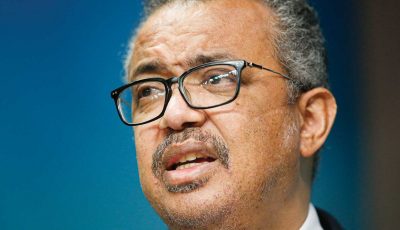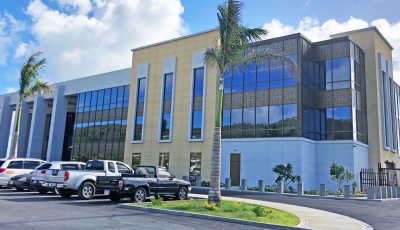ON ALLEGED ‘UNCONSTITUTIONALITY’ OF TORRES VETO
Hocog calls on lawmakers to sit down and work things out
A legal opinion by Attorney General Edward Manibusan shared this week labels several attempted amendments to casino law last year as “unconstitutional” and outside legislative authority, and gives some background to Gov. Ralph DLG Torres’ exercise of veto powers that House majority leaders in turn declared as “unconstitutional.”
It appears to be two-way street of cries of unconstitutionality, in the most recent dispute between the executive and legislative branch. On Tuesday, House leaders rallied on the grounds that Torres had no authority to line-item veto House bill 19-95, an amendment to the casino law, after passing both upper and lower house late last year. House leaders essentially declared Torres’ line-item vetoes—of casino tax relief and legislative oversight of casino license revocation, among others—as inappropriate, arguing that bill was not an appropriations bill—as Torres deemed it—and therefore outside the mark of the governor’s veto pen.
However, acting governor Victor Hocog scoffed yesterday at House leaders who poised the option of override during the Tuesday session. “So what happened?” Hocog told reporters after a proclamation-signing event. “So why didn’t they override [the bill]? Was the session intended yesterday for the override action?”
An override discussion was not scheduled on Tuesday’s agenda but put on the table after lawmakers pulled out Torres’ veto message letter from early December, some two months ago.
“I can only say that, that it is their prerogative,” Hocog went on to say. “If they feel it is was it is in their opinion, they should act on it before the time runs out. Right?” The deadline for override is today.
Asked if he shared the position that the casino law amendment was an appropriations bill—which House leaders disagree with—Hocog said, this was a “two-way street.” He went on to note the bill’s provisions to provide full time positions at the Commonwealth Casino Commission and funding to monitor the Best Sunshine International, Ltd.’s temporary casino.
If the recent law legitimizes the gaming commission’s regulatory powers, Hocog said, then the commission would “definitely” have been impacted by an override. But still, if House proceeded with an override and the Senate “sat on it” then “what’s the use?” Hocog asked.
If lawmakers felt strongly about their position that Torres’ actions were unconstitutional, Hocog said, “then they should have come over and discussed that” with the executive branch so they could “agree on what do” or “expedite” new legislation without affecting the operations of the casino commission.
According to Hocog, lawmakers never brought the issue to his or the Executive Branch’s attention. “I was a little bit surprised yesterday when I was given a heads up that the House is considering to override the governor’s line-item veto.”
“The best bet is to sit down,” Hocog said, “and come up with a language that will satisfy constitutional sufficiency. And at the same time, “not jeopardize” the provisions “that provided employment and operations of the gaming commission.”
Hocog welcomed the leaders in the House to sit down with the governor, himself, and the attorney general and discuss “what is unconstitutional” so “they could correct it before codification.”
AG opinion
When pressed, Torres officials continued to maintain that the main intent of House Bill 19-95 was to appropriate money. And because of this, officials said, they went through the same steps that an appropriations bill would require, and line-item vetoed the bill’s “blatant, unconstitutional” provisions.
From attorney to client, Manibusan, in a letter to Torres last year, wrote of “legal issues” with House Bill 19-95.
On an amendment to casino law that would have prevented Saipan casino regulators from revoking the casino license “without the consent of both houses of the Legislature,” Manibusan said, lawmakers did not possess this constitutional authority.
“The Commonwealth government is divided into three coordinate branches,” he said, and the separation of powers doctrine “safeguard[s] the independence of each branch of the government and protect it from domination and interference by others.”
The Executive Branch is responsible for the execution of the laws of the Commonwealth, Manibusan said, and “requiring legislative approval for the revocation of the casino license violates the separation of powers doctrine because the Commonwealth Legislature would be exercising a power that the constitution has assigned to the Executive Branch.”
“While the Commonwealth Legislature can prescribe general rules on the regulation of casino gambling in the Commonwealth, it has absolutely no authority to require legislative approval of the revocation of the casino license,” he added.
Further, the Commonwealth Constitution requires legislation to be presented to the governor for approval or veto, Manibusan said. “Any attempt to allow the Legislature to overturn an agency division without the governor’s consent would violate” the NMI Constitution.



























